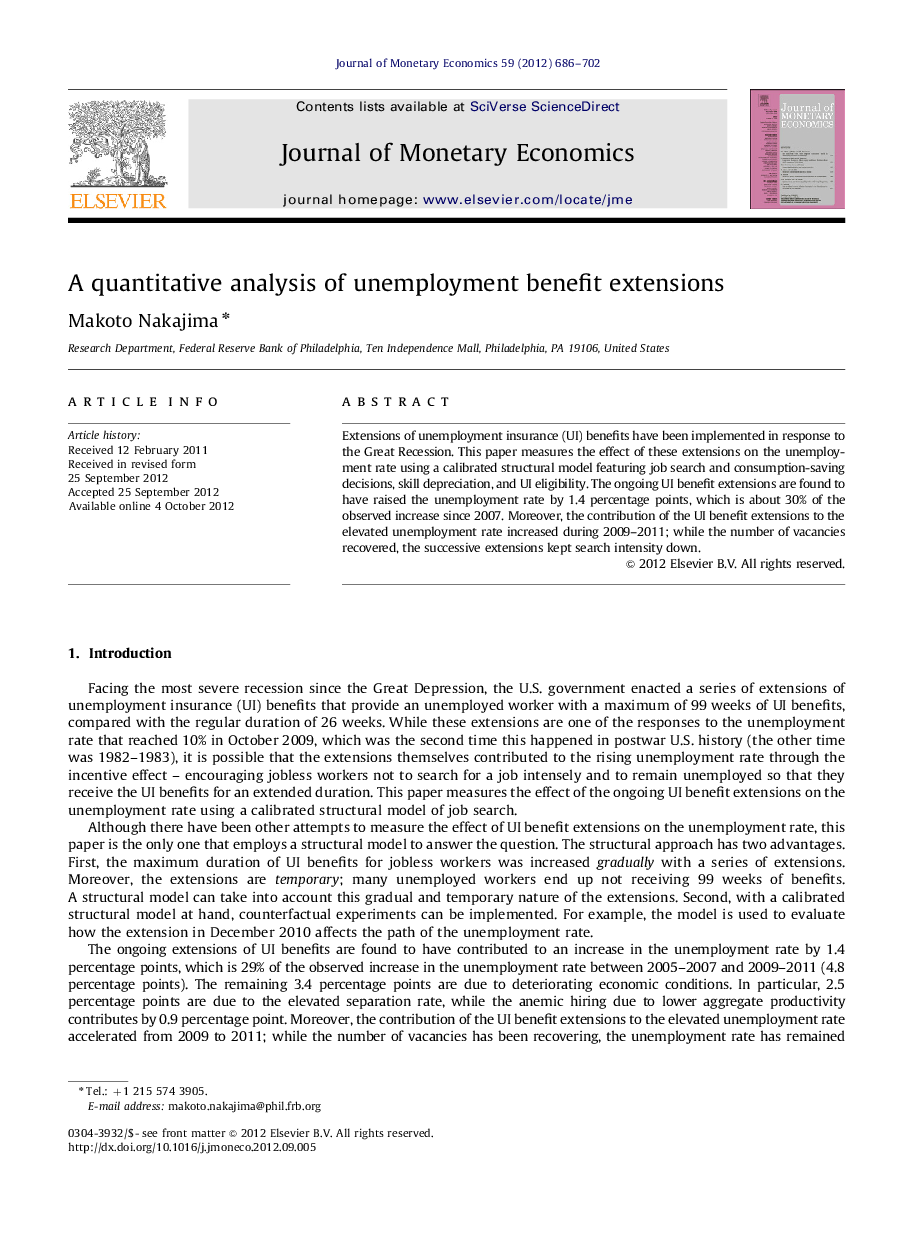| Article ID | Journal | Published Year | Pages | File Type |
|---|---|---|---|---|
| 967475 | Journal of Monetary Economics | 2012 | 17 Pages |
Extensions of unemployment insurance (UI) benefits have been implemented in response to the Great Recession. This paper measures the effect of these extensions on the unemployment rate using a calibrated structural model featuring job search and consumption-saving decisions, skill depreciation, and UI eligibility. The ongoing UI benefit extensions are found to have raised the unemployment rate by 1.4 percentage points, which is about 30% of the observed increase since 2007. Moreover, the contribution of the UI benefit extensions to the elevated unemployment rate increased during 2009–2011; while the number of vacancies recovered, the successive extensions kept search intensity down.
► The effect of UI benefit extensions on the unemployment rate (UR) is measured. ► A calibrated structural model of job search with realistic UI extensions is used. ► The current UI benefit extensions raised the UR by 1.4 percentage points. ► The contribution of the UI extensions to the elevated UR rose during 2009–2011. ► Extension in December 2010 kept the UR higher by 0.6 percentage points in 2011.
